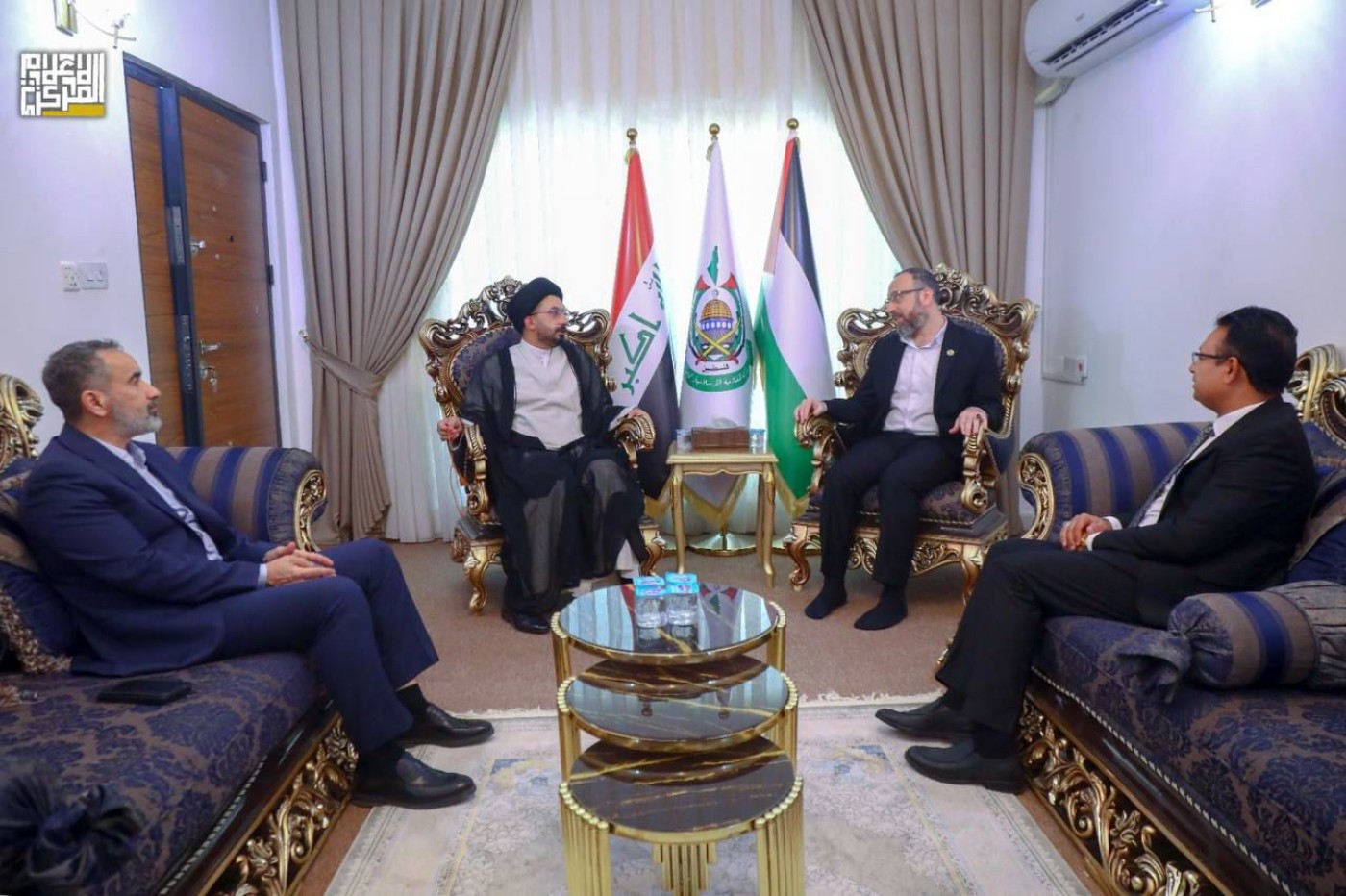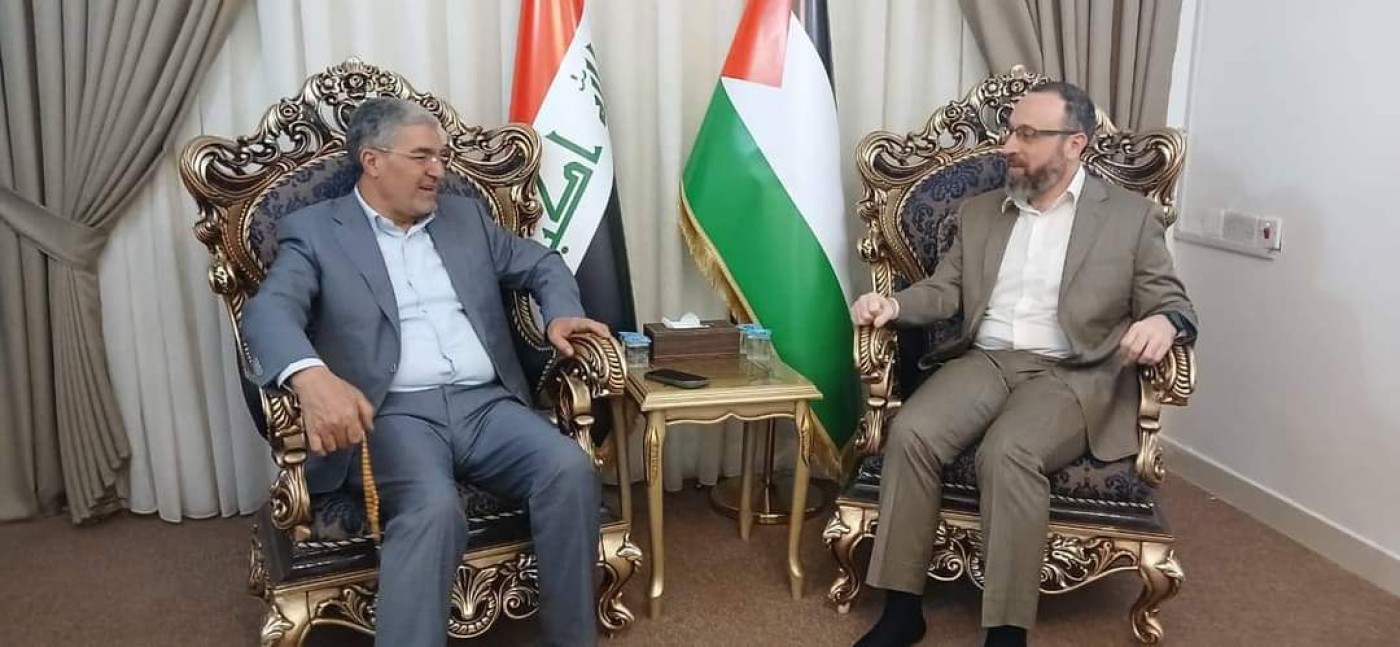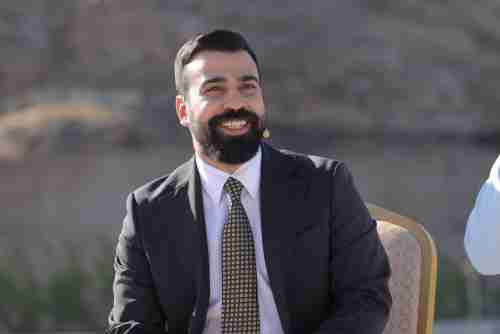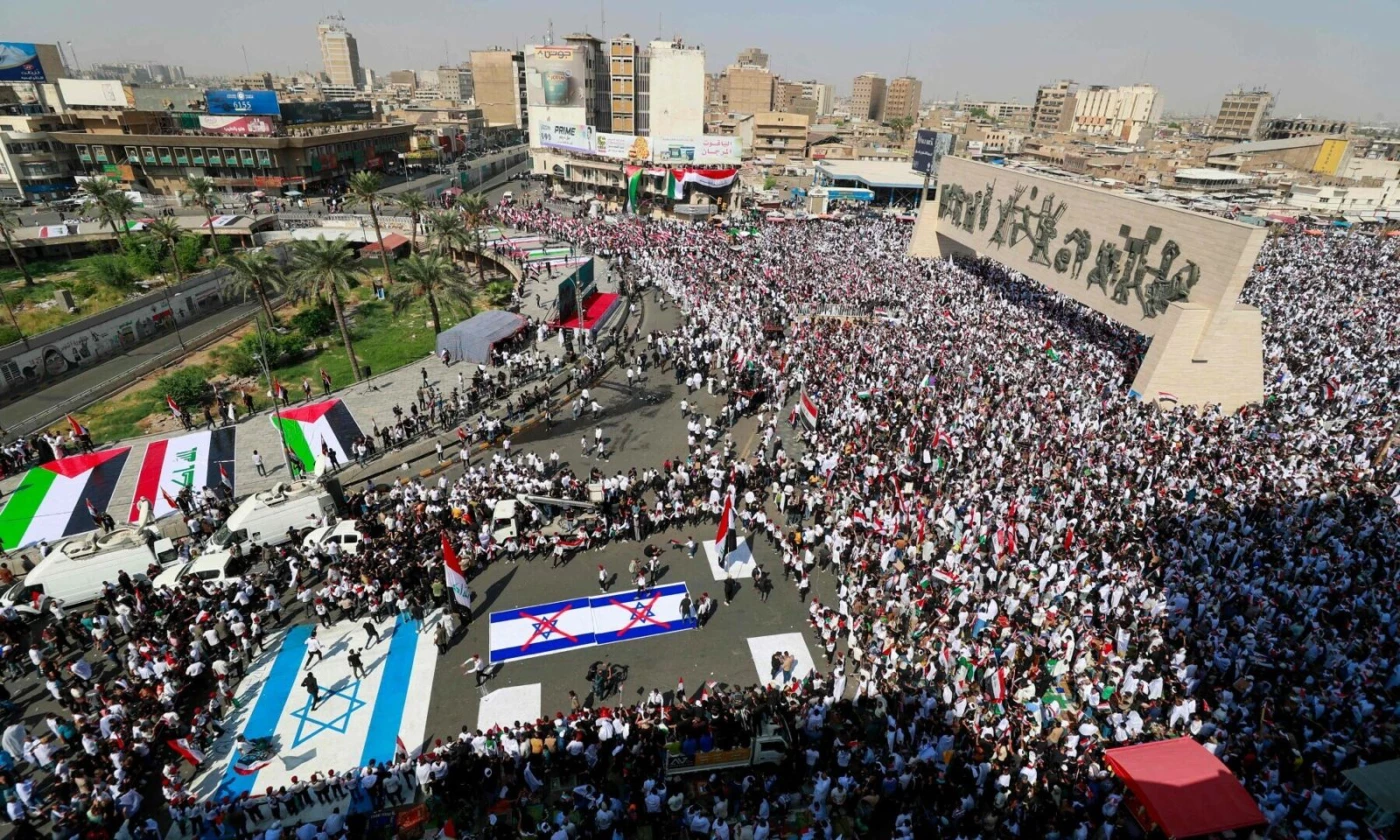Hamas is not moving its leadership office to Baghdad, senior sources close to the Iraqi government and a Hamas spokesperson confirmed to The New Region, however pro-Iran armed groups welcome any such move.
Following reports suggesting a potential relocation of Hamas's political leadership to Baghdad, the US State Department reiterated on Monday its message to Middle Eastern leaders to not engage with Hamas. However, Hamas denied any intention to move to Iraq.
“We deny such news, we have made no such decision to move to Baghdad,” Wissam al-Hassan, a spokesperson to Hamas, told The New Region.
The speculation about Hamas potentially relocating intensified after the publication of photos showing Mohammed al-Hafi, a Hamas representative, meeting with pro-Iran Iraqi armed groups in Baghdad. This raised questions about whether Hamas has at least established a media office in Baghdad. When pressed on the matter, the Hamas spokesperson avoided providing a direct answer.
Politburo member of the Islamic Resistance in Iraq, Muhannad al-Zamili, meeting a member of Hamas’s Arab and Islamic Relations Office, Mohammed al-Hafi, in Baghdad.
In one of the meetings, Hafi was seen sitting with Rashid al-Azzawi, head of the Iraqi Islamic Party, leaning towards the Muslim Brotherhood, and advisor to the Iraqi prime minister for public affairs.
However, one thing is certain, there is no plan for Hamas to move the leadership office, already stationed in Qatar, to Baghdad, this was confirmed by the Iraqi Prime Minister’s Security Policies Advisor Khalid al-Yaqobi.
“There is no truth to it and no such topic has been discussed,” Yaqobi told The New Region.
Yaqobi’s statement was echoed further by another source close to the Iraqi government.
“No request for Hamas relocation has been submitted to the Iraqi government and all the information that is circulating in this regard are false,” the source told The New Region.
The US State Department had already warned when asked about such a news.
“I saw the reports, and I don’t want to speak to their validity. But we have made clear to every government in the region that there should be no more business as usual with Hamas after the horrific attacks of October 7th. And that applies to everyone,” State Department spokesperson Matthew Miller told reporters on Monday.
When asked if that applies to Iran as well, given that the reports indicated that Iran would provide security to a Hamas relocation to Baghdad, Miller reiterated that the statement is applicable to all states.
“Applies to everyone,” he said.
However, despite Hamas not having any intention for such a move and US warnings against such engagement, pro-Iran armed groups in Baghdad are not hesitant to welcome the group into the Iraqi capital, if it were to happen.
Among perhaps many pro-Iran groups that share the same sentiment of their state ally, Kataib Sayyid al-Shuhada, an official part of the Popular Mobilization Forces (PMF), said that no news of such a move has been delivered to them, though they would not stand against it.
“We have not heard about such a relocation happening,” spokesperson to the armed group Kadhim al-Fartousi told The New Region. “But if they want to come, our doors are open and will always be open for any Palestinian offices and political missions to come to Baghdad.”
This comes as pro-Iran armed groups and the PMF have a history of conflict with the US.
Following the US assassination of IRGC commander Qasem Soleimani and PMF head Abu Mahdi al-Muhandis in 2020, both sides have on numerous occasions attacked each other inside Iraq.
The Iraqi government, formed by the Iran-leaning Coordination Framework, is now in talks with the US government to end the US and foreign military presence in the country as part of the global coalition.
Earlier this month, Tracey Jacobson, US President Joe Biden’s nominee for US Ambassador to Iraq, addressed the senate’s committee on foreign relations.
“We recognize that the primary threat to Iraq’s stability and sovereignty are the Iran-aligned militias. These groups receive weapons, training, and other support from Iran, and use their arms and cash to promote Iran’s influence over Iraq,” Jacobson said.
“If confirmed, I will use the full range of U.S. policy tools to counter these malign groups and stem Iran's influence,” she added.
Jacobson’s statement was slammed by Yaqobi soon later.
“We listened to the hearing session of the candidate for the position of US ambassador to Iraq, and it included a clear lack of understanding of the new, recovering Iraq, interference in its internal affairs, and insults to its neighbors,” Yaqobi said in a post on X (formerly Twitter).
Several Iraqi officials, including the head of the Popular Mobilization Forces (PMF), are sanctioned by the US for their ties with Iran.
Attempts to end the global coalition’s mission solidified from the Iraqi side following US attacks on bases and facilities belonging to PMF, targeting leaders and members of the group.
Following an attack in early February that killed two officials from the Kataib Hezbollah armed group, which is officially incorporated into the Iraqi armed forces, Iraq’s top military spokesperson Yehia Rasool said that the Iraqi government’s will to end US presence in the country is now “more than ever”.
Though the US has on multiple occasions claimed that the global coalition is in Iraq upon the invitation of the Iraqi government to help and train Iraqi troops in the fight against ISIS, and claims that troops remaining in the country serve an advisory and training role, it has always remained a serious question whether the Iraqi armed forces are now able to defend Iraq in case of a new insurgency.
The Iraqi government has on several occasions said that the threat of ISIS is no more and therefore there is no need for foreign troops to remain in the country.
Additional reporting by Bizhar Shareef



 Facebook
Facebook
 LinkedIn
LinkedIn
 Telegram
Telegram
 X
X


